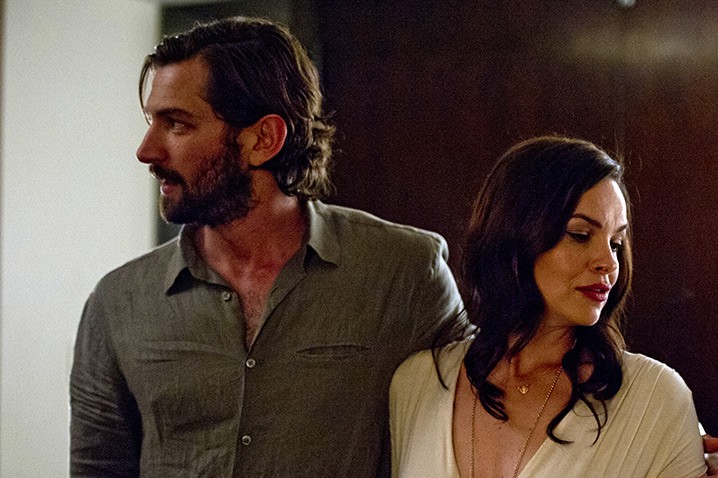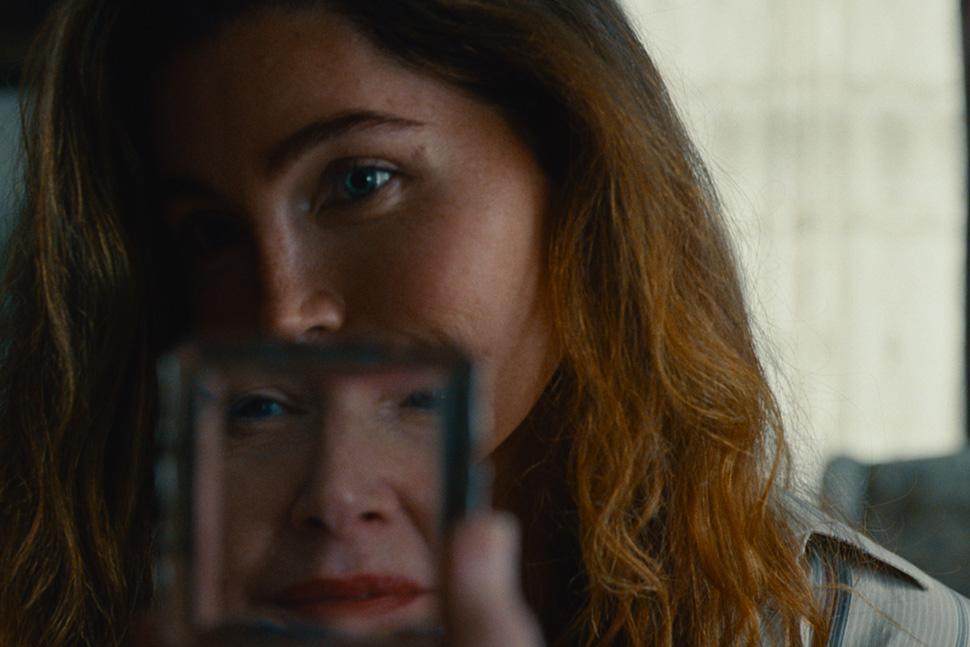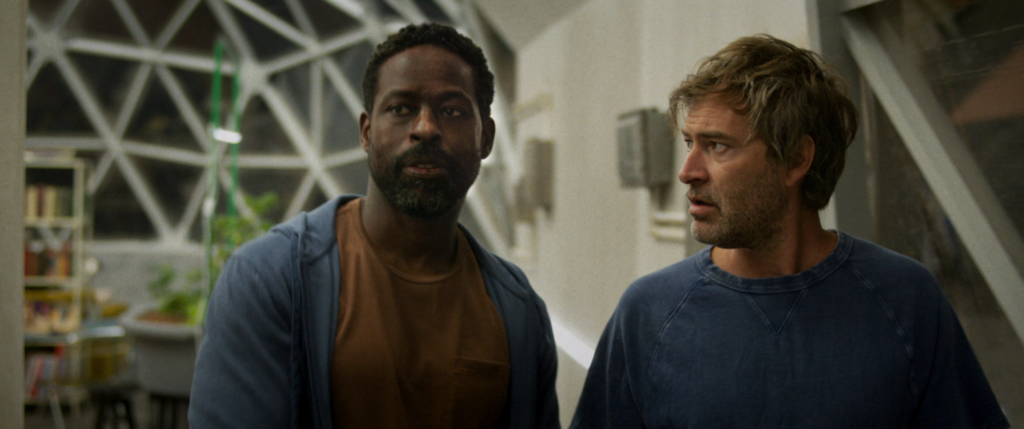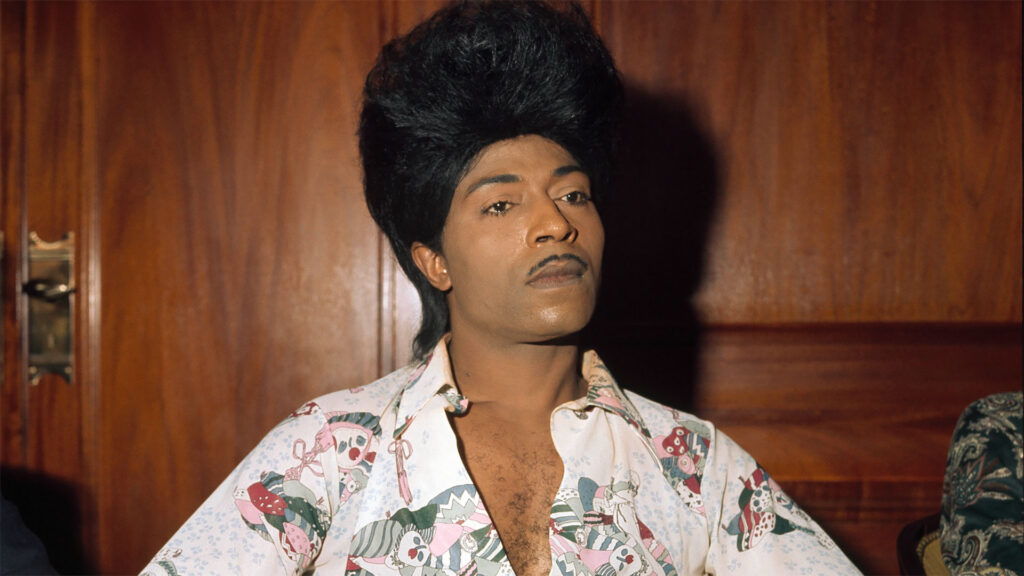Karyn Kusama wrote and directed her first feature film, “Girlfight,” in 1999. The film won the Director’s Prize and shared the Grand Jury Prize at the 2000 Sundance Film Festival, the Grand Prize at the Deauville Film Festival, the Prix de la Jeunesse at the Cannes Film Festival and the IFP’s Gotham Award for Best Feature. Kusama directed the 2005 science-fiction love story “Aeon Flux,” starring Charlize Theron and Frances McDormand. Her third feature was the 2009 comedy-horror film “Jennifer’s Body,” written by Diablo Cody and starring Amanda Seyfried and Megan Fox. (Press materials)
“The Invitation” opens in theaters and is available on VOD April 8.
W&H: Describe the film for us in your own words.
KS: “The Invitation” is a psychological suspense film about a man who returns to the home he used to share with his wife and young son. Two years after a tragedy that tears them apart, his now ex-wife and her new husband assemble an old group of friends for a reunion of sorts and a celebration of new beginnings. What starts as a tense and challenging night for our main character becomes a paranoid nightmare.
W&H: What drew you to this story?
KS: The themes of grief and denial — and the power those twin states have on us — felt enduring and true to me. I loved the challenge of making such a contained and claustrophobic film, and I was drawn to its daring narrative shape.
W&H: What do you want people to think about when they are leaving the theater?
KS: I hope they think about the ever-presence of violence, both physical and emotional, in our society, and that despite how numb we’ve become to the casual barrage of brutal words and actions in our world, all this violence actually means something. It takes a toll on us, it has consequences for every individual and for the planet and it has a human face.
W&H: What was the biggest challenge in making the film?
KS: It takes a tremendous amount of patience to endure the dashed hopes and unwelcome surprises that can accompany making any film — and this one was no different. It took a long time to get it financed and finally made, and it required a persistence and a faith in me that wasn’t always easy to cultivate within myself. There are always huge external challenges to making every film, but this film required a lot of internal work on my part.
W&H: How did you get your film funded? Share some insights into how you got the film made.
KS: I was lucky to work with Gamechanger Films, who are a consortium of investors financing films directed by women. This is a company that puts their money where their mouth is. Once they came on board for the majority of the budget, we were able to find the final piece of financing pretty quickly.
I think it’s important to know who you’re getting into bed with — you need to research your financing entities as much as they need to research you. Now that it’s all said and done I’m grateful to report that I worked with a team of smart, committed people who really like movies.
W&H: What’s the biggest misconception about you and your work?
KS: Probably that I make a big deal of being a “female director,” to be honest. I’m a director first and foremost, and I hope that the fact that I’m female is just one of the many things that informs my unique perspective on the world. If the statistics weren’t so dismal, the conversation around gender could recede a bit and female filmmakers could start to be embraced on purely creative terms — but for now, frustratingly, it still remains a vital issue to address because change has been so slow in coming.
W&H: What’s the best and worst advice you’ve received?
KS: Best advice: “Just be yourself.” Worst advice: “Just be yourself.”
W&H: What advice do you have for other female directors?
KS: Just be yourself! Ha. And I do in fact mean that. But I also think it’s important to dig down and find your most hopeful, your most sober, your most self-assured and your most open self in the process of “being yourself.” Because the fact is you need all of those qualities, even when they’re living in opposition to one another, to make opportunities for yourself in this business.
W&H: Name your favorite woman-directed film and why.
KS: Chantal Akerman’s “Jeanne Dielman, 23 quai du Commerce, 1080 Brussels.” Thrillingly subversive and mesmerizingly obsessive. It’s worth watching again and again for the discipline of its steady gaze and the mastery of its subtle storytelling. A towering achievement.







